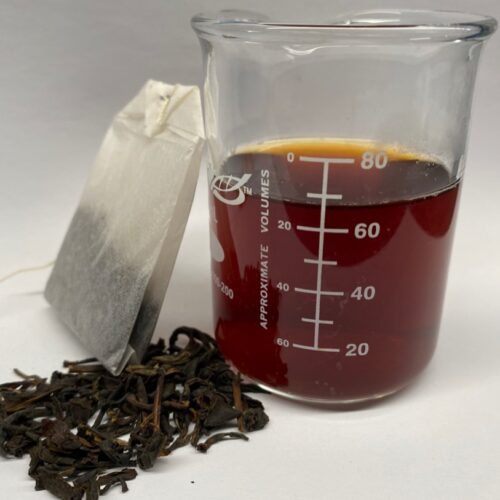Brewing tea removes lead from water
That comforting hot cup of tea—or refreshing glass of iced tea on a hot summer day—could help reduce the amount of toxic metals in drinking water, according to a new paper published in the journal ACS Food & Science Technology.
“We’re not suggesting that everyone starts using tea leaves as a water filter,” said co-author Vinayak Dravid, who studies sorbent materials at Northwestern University. “Our goal was to measure tea’s ability to adsorb heavy metals. By quantifying this effect, our work highlights the unrecognized potential for tea consumption to passively contribute to reduced heavy metal exposure in populations worldwide.”
Some 2 billion people drink tea on a daily basis worldwide, and numerous studies have suggested various health benefits from regular tea consumption. Most nutrition studies focus on things like polyphenols, caffeine, or other chemicals released during brewing, but such research overlooks a unique aspect of tea: unlike most food and drink, tea leaves are not directly consumed, and the brewing process allows tea leaves to adsorb chemicals as well as release them—most notably heavy metal toxins like lead, arsenic, or cadmium. (Adsorption is when a substance adheres to the surface of something; absorption is when a material takes in a substance.)


© Vinayak P. Dravid Group/Northwestern University
